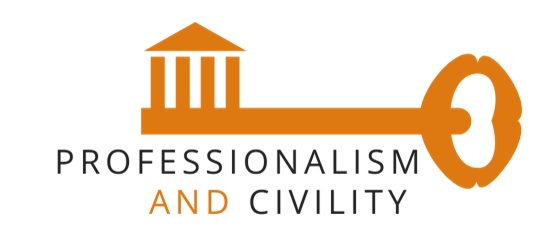 Creed of Professionalism and Civility
Creed of Professionalism and Civility
Adopted January 19, 2023, Revised June 21, 2023; State Bar of Nevada Board of Governors.
PREAMBLE
A lawyer should always show personal courtesy and professional integrity in the fullest sense of those terms.
In fulfilling our duty to represent a client vigorously as lawyers, we will honor our obligations to the administration of justice in a rational, peaceful, and efficient manner. We remain committed to the rule of law as the foundation for a just and peaceful society.
Lawyers should exhibit courtesy, candor, and cooperation when participating in the legal system and dealing with the public. In addition, lawyers should demonstrate civility, professional integrity, personal dignity, and respect because these qualities are essential to the fair administration of justice and conflict resolution.
The Rules of Professional Conduct cannot address every conflict that may arise. These standards honor the spirit of the Rules by balancing a lawyer’s obligation to protect and pursue a client’s legitimate interests zealously, within the bounds of the law, while maintaining a professional, courteous, and civil attitude toward all persons in the legal system, as well as avoid the appearance of any impropriety. Violations of these standards may trigger sanctions under Rules 4.4, 8.4(b), or others.
CREED
- We will strive to find harmony in our responsibilities as a representative of clients, as officers of the legal system, and as public citizens.
- We will treat all participants of the legal system in a civil and courteous manner, not only in court, but also in all other written and oral communications, refraining from disparaging personal remarks or acrimony.
- We will not encourage or knowingly authorize any person under our control to engage in uncivil conduct.
- We will not, absent good cause, attribute bad motives or improper conduct to other counsel nor bring the profession into disrepute by unfounded accusations of impropriety.
- We will adhere to promises and agreements fairly reached, whether orally or in writing, in good faith. When reiterating oral promises or agreements in writing, we will fairly, completely, and in good faith, restate all elements of the parties’ oral agreement.
- We will confer early with other counsel to assess settlement possibilities. We will not falsely hold out the possibility of settlement to adjourn discovery or to delay trial.
- We will stipulate to undisputed matters unless we have a good-faith basis not to stipulate.
- We will try in good faith to resolve our objections with opposing counsel.
- We will not time the filing or service of motions or pleadings in any way that unfairly limits another party’s opportunity to respond, nor will we request an extension of time without just cause.
- We will consult other counsel regarding scheduling matters in a good-faith effort to avoid scheduling conflicts.
- We will endeavor to accommodate previously scheduled dates for hearings, depositions, meetings, conferences, vacations, seminars, or other functions of other counsel.
- We will explain to our clients that cooperation is the professional norm. We will explain how procedural agreements do not compromise the clients’ interests.
- We will draft document requests and interrogatories without placing an undue burden or expense on any party.
- We will ensure that our clients respond to document requests and interrogatories without strained interpretation. We will not produce documents nor answer interrogatories in a manner designed to hide or obscure the existence of documents or information.
- We will be punctual and prepared for all Court appearances so that all hearings, conferences, and trials may commence on time.
- We will not engage in conduct that brings disorder or disruption to the legal proceeding. We will advise our clients and witnesses of the proper conduct expected and, to the best of our ability, prevent our clients and witnesses from creating disorder or disruption.
In summary…
…consistent with the lawyer’s oath, lawyers are expected to commit to the spirit and letter of these standards, affirming that these guidelines do not denigrate the lawyer’s duty of zealous representation. Law schools and continuing legal education courses should incorporate these standards when teaching professionalism to law students and practicing lawyers alike. Lawyers should make copies available to clients and adjudicators should reinforce these standards in the courtroom to reinforce our obligation to maintain and foster these standards and to make it clear that incivility may hurt the client’s case.
